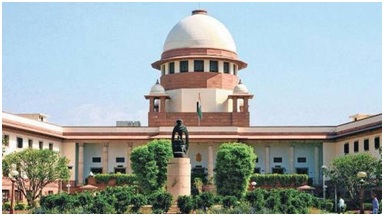
States can decide on exempting certain municipal areas from liquor ban, says Supreme Court
.
Why is it in news?
- The Supreme Court gave the State governments the discretion to decide, on facts, whether areas covered by local self-governing bodies or areas proximate to municipal pockets should be exempted from the court’s nationwide prohibition on sale of liquor within 500 metres along the highways.
Details
- On July 11, 2017, the court exempted municipal areas from the prohibition. It said the ban mainly targeted busy national and State highways inter-connecting cities, towns and villages along.
- The purpose of the ban, imposed in a December, 2016 judgement, was to prevent drunken driving along these busy thoroughfares. “The order does not prohibit licensed establishments within municipal areas,” the court clarified in the July 11 order.
- However, the July 11 order triggered more questions than answers. States, especially Tamil Nadu, came back to the court, asking whether panchayats would also come under the definition of “municipal areas” mentioned in the July 11 order. Tamil Nadu said “municipal areas” were not “intended to exclude areas within the jurisdiction of local self-governing bodies.” The States reasoned that in future, these panchayats might be developed in a manner similar to municipalities, or some of them might be geographically proximate to an urban agglomeration. They sought a clarification about the “obvious uncertainties” thrown open by the order.
- Without intervening, a Bench of Chief Justice of India Dipak Misra and Justices Amitava Roy and D.Y. Chandrachud said the court left it to the States to take a decision after examining “whether an area covered by a local self-governing body is proximate to a municipal agglomeration or is sufficiently developed” to apply the exemption granted to municipal areas in the July 11 order.
- In deciding whether the principle which has been set down in the order dated July 11, 2017 should be extended to a local self-governing body (or statutory development authority), the State governments would take recourse to all relevant circumstances, including the nature and extent of development in the area and the object underlying the direction prohibiting the sale of liquor on national and State highways.

Source
The Hindu

